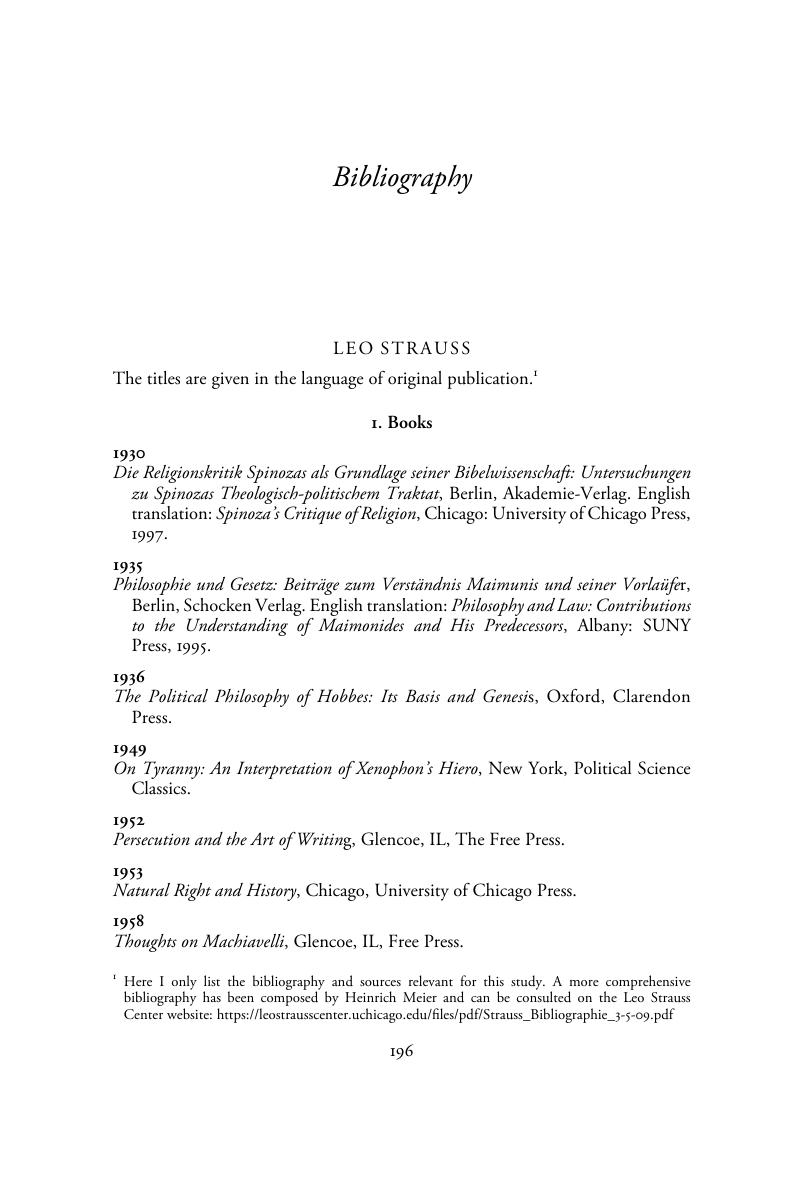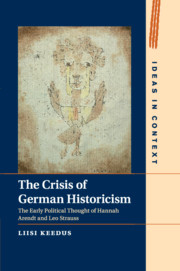Book contents
- Half title page
- Ideas in Context
- Title page
- Copyright page
- Dedication
- Contents
- Book part
- Introduction
- Chapter I The untimely generation
- Chapter II The problem of politics in Arendt’s and Strauss’s early writings
- Chapter III History and political understanding: An ambivalent symbiosis
- Chapter IV Liberalism and modernity: Rethinking the question of the “proud”
- Chapter V Retrieving the problem oftheoriaandpraxis: The antagonisms
- Epilogue
- Bibliography
- Index
- Ideas in Context
- References
Bibliography
Published online by Cambridge University Press: 05 March 2015
- Half title page
- Ideas in Context
- Title page
- Copyright page
- Dedication
- Contents
- Book part
- Introduction
- Chapter I The untimely generation
- Chapter II The problem of politics in Arendt’s and Strauss’s early writings
- Chapter III History and political understanding: An ambivalent symbiosis
- Chapter IV Liberalism and modernity: Rethinking the question of the “proud”
- Chapter V Retrieving the problem oftheoriaandpraxis: The antagonisms
- Epilogue
- Bibliography
- Index
- Ideas in Context
- References
Summary

- Type
- Chapter
- Information
- The Crisis of German HistoricismThe Early Political Thought of Hannah Arendt and Leo Strauss, pp. 196 - 220Publisher: Cambridge University PressPrint publication year: 2015



